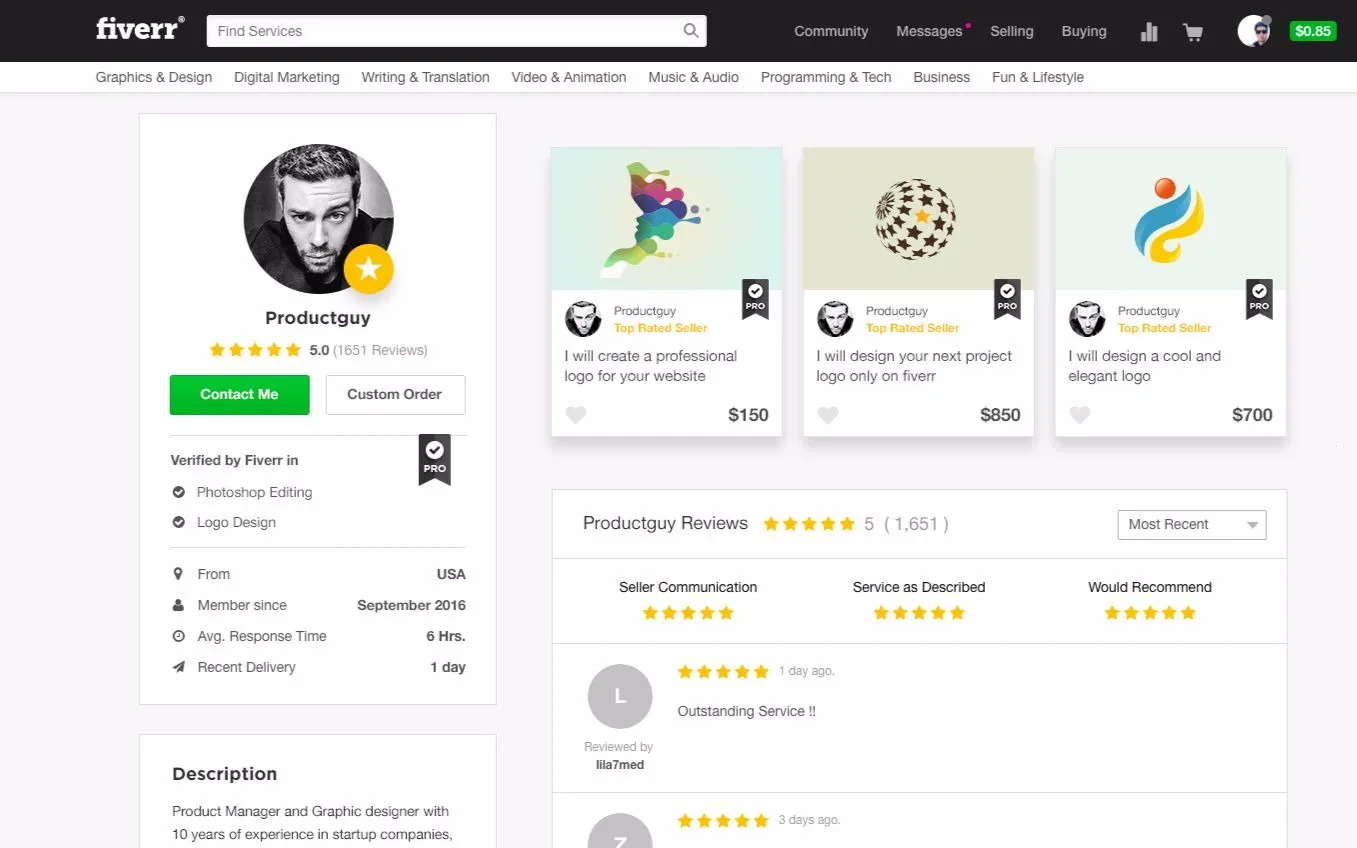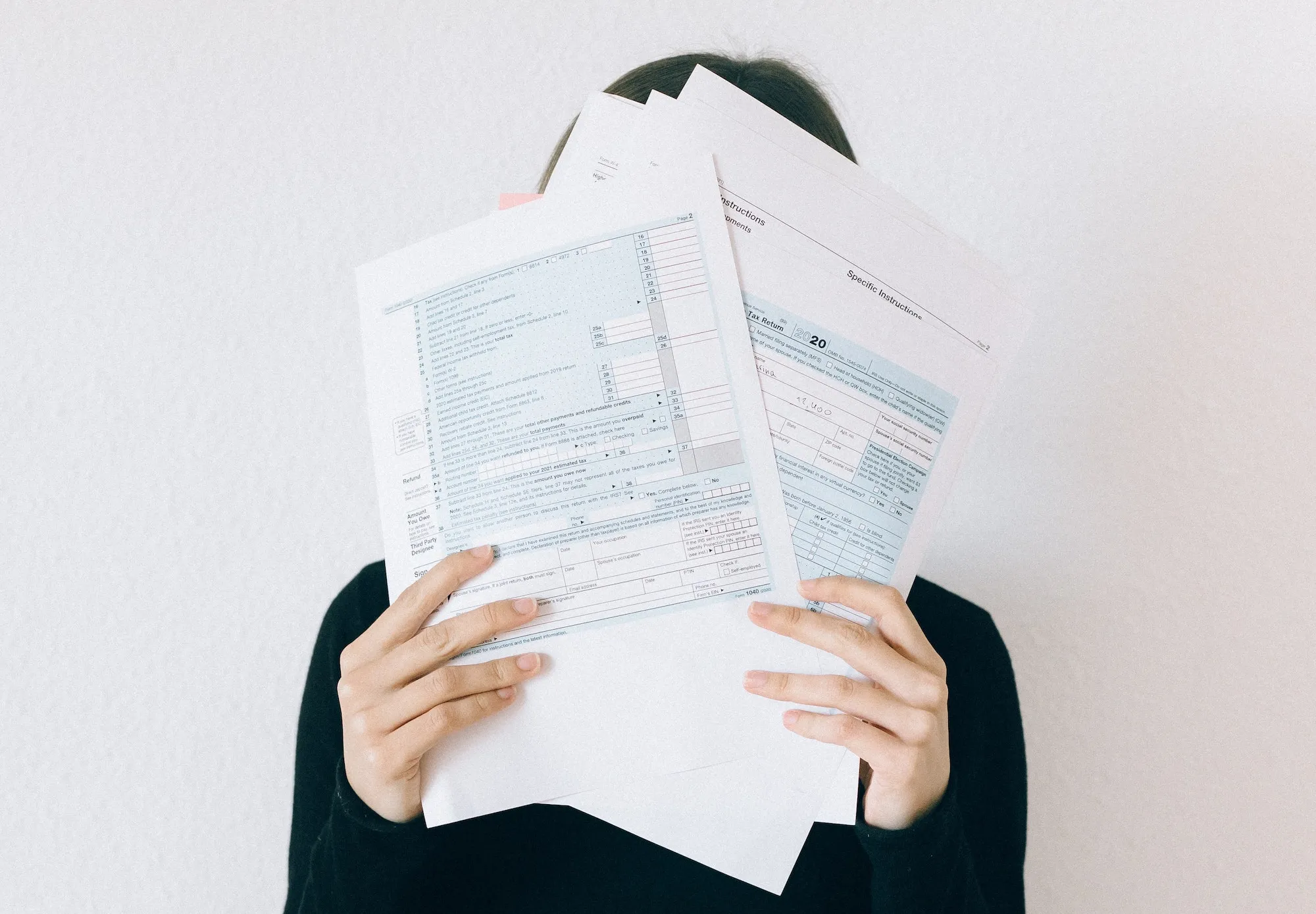Hey there, freelancer! If you're earning money on platforms like Fiverr, it's crucial to understand your tax responsibilities. One common question many freelancers have is whether Fiverr issues 1099s. In this post, we’ll break it down for you. We'll cover the ins and outs of the 1099 form and what it means for your earnings. So grab a cup of coffee, and let's dive in!
What is a 1099 Form?

A 1099 form is a tax document used in the United States to report income earned by individuals who are not classified as employees. Unlike a W-2 form, which is provided to employees, the 1099 is typically used for independent contractors, freelancers, and other non-employees. Here's a closer look at the essential aspects of a 1099 form:
- Types of 1099 Forms: There are several types of 1099 forms, but the most common one you'll encounter as a freelancer is the 1099-NEC (Non-Employee Compensation). This form is used to report payments made to independent contractors totaling $600 or more in a calendar year.
- Why It's Important: Receiving a 1099 form is crucial because it helps you report your earnings accurately when filing your federal tax return. The IRS gets a copy of this form too, so it's in your best interest to report it correctly.
- When & How to Receive: Companies are required to send out 1099 forms by January 31st of the following year. You might receive it electronically or via postal mail, depending on the company’s policy.
- Tax Responsibilities: Receiving a 1099 means you’ll need to pay self-employment taxes. Be prepared to handle quarterly estimated tax payments because the IRS expects you to pay taxes throughout the year instead of in one lump sum.
In summary, the 1099 form serves as a reminder that, as a freelancer, you're responsible for reporting your income accurately and understanding the tax implications it brings with it. So, now that we know what a 1099 form is, let’s explore whether Fiverr actually issues them!
Also Read This: How to Start as a Freelance Worker
Who is Required to Issue a 1099?

When it comes to tax season, understanding who is required to issue a 1099 form can feel a bit like deciphering a secret code, especially for freelancers working through platforms like Fiverr. So, let's break it down.
Generally, the IRS requires businesses or individuals to issue a 1099 form if payments exceed $600 in a calendar year for freelance or contractor services. Here are some key points to consider:
- Businesses and Individuals: If you're a business or an individual hiring freelancers (not just casual labor), you’re likely required to issue a 1099.
- Threshold Amount: The $600 threshold means if you pay a freelancer $600 or more throughout the year for their services, you must provide them with a 1099 form.
- Type of Service: The services rendered must qualify as non-employment compensation. If they are classified as an employee, a W-2 form is needed instead.
- Tax ID Requirement: You’ll need the freelancer’s tax identification number (either their Social Security Number or Employer Identification Number) to properly complete the form.
Given this information, if you’re a freelancer on Fiverr and you meet these criteria—heads up, your clients might be sending you a 1099!
Also Read This: Best Fiverr Sellers for E-learning Development in 2024
Fiverr’s Business Model

Fiverr has fundamentally changed the gig economy, making it easier for freelancers and clients to connect and collaborate. So, how does this platform really work? Let’s dive into Fiverr's business model.
Fiverr operates as a marketplace where freelancers can offer services called "gigs," ranging from graphic design and writing to programming and video editing. Here are some key aspects of Fiverr’s business model:
- Service-Based Marketplace: Fiverr connects freelancers (sellers) with clients (buyers) looking for specific services. Each gig is posted with a base price, which the freelancer can increase based on complexity.
- Commission Structure: Fiverr takes a commission from the freelancers’ earnings, typically 20%. This means if you charge $100 for a gig, you’ll receive $80 once Fiverr deducts its fee.
- Tiered Pricing: Freelancers can offer multiple packages (basic, standard, premium) within their gigs, allowing for upsell opportunities depending on the services provided.
- Global Reach: With clients and freelancers from all over the world, Fiverr has created a global platform that allows for diverse offerings and price points.
In short, Fiverr's model not only empowers freelancers to showcase their skills and manage their workload but also provides clients with a wide array of options to meet their needs—all while making sure that payment processing and communication are seamlessly handled through the platform.
Also Read This: How to Describe Yourself on Fiverr: A Complete Guide
Does Fiverr Issue 1099s to Freelancers?
When you’re working as a freelancer on Fiverr, you might be wondering about the tax paperwork you’ll need to deal with, especially when it comes to receiving a 1099 form. So, does Fiverr issue 1099s? The answer isn’t straightforward, but let’s break it down.
Fiverr typically does not issue 1099 forms to freelancers for their income earned on the platform. Instead, it reports earnings to you as the freelancer via a monthly earnings report. However, if your total earnings exceed *$600 in a calendar year, that’s when things get a bit more interesting. While Fiverr doesn’t send you a 1099, you are still obligated to report that income on your tax return.
To summarize:
- Fiverr does not generally issue 1099 forms.
- You must report all freelance income, even if you don’t receive a 1099.
- If you earn over $600, it's critical to keep track of your income and expenses.
It’s always a good idea to consult a tax professional if you’re unsure about how to handle your earnings. While freelance work can be rewarding, navigating the tax implications can be a bit tricky!
Also Read This: Top 10 Ghostwriters on Fiverr in 2024
Tax Implications for Fiverr Freelancers
Freelancing on platforms like Fiverr can be exciting, but it also means you have to take your tax responsibilities seriously. Here are some of the key tax implications you should be aware of:
- Self-Employment Tax: As a freelancer, you’re considered self-employed, meaning you’ll be responsible for paying self-employment tax, which covers Social Security and Medicare. This is usually 15.3%* on your net earnings.
- Quarterly Estimated Taxes: Since taxes aren’t automatically withheld from your payments, you may need to pay estimated taxes quarterly. This helps avoid a hefty bill come tax season.
- Deductions: Freelancers can benefit from various tax deductions. You can deduct business expenses like software, advertising costs, and even a portion of your home office if you work from home. Keep those receipts!
- State Taxes: Don’t forget about state taxes, which may vary depending on where you reside. Check your state’s requirements to ensure you’re compliant.
Understanding these implications can help you prepare for tax season and avoid unnecessary stress. Remember to keep meticulous records of your earnings and expenses—a vital step in ensuring that your freelancing venture runs smoothly from a tax perspective!
Also Read This: Understanding Impressions on Fiverr: What They Mean and Why They Matter
7. How to Access Your Earnings on Fiverr
Accessing your earnings on Fiverr is a straightforward process. As a freelancer, keeping track of your revenue is crucial, especially when tax season rolls around. Here’s how to retrieve your earnings:
- Log in to Your Fiverr Account: Begin by logging into your Fiverr account with your credentials. This will take you to your Fiverr dashboard.
- Go to “Earnings”: On the dashboard, you'll find the “Earnings” tab, generally located in the drop-down menu under your profile icon. Click on it to see a detailed breakdown of your earnings.
- Explore Earnings Overview: Here, you can see your total earnings, completed orders, and the balance available for withdrawal. It’s a neat way to visualize your financial progress.
- Withdrawal Options: To access the money you've earned, click on “Withdraw Funds.” Fiverr offers various withdrawal options, including PayPal, bank transfer, and Fiverr Revenue Card. Select the one that suits you best.
- Download Tax Documents: If you're preparing for tax time, look for options to download your earnings reports. Fiverr allows you to download your transaction history, which is essential for your tax preparations.
By keeping an eye on this section of your Fiverr account, you can easily track your earnings and stay organized, helping you manage your finances effectively throughout the year.
Also Read This: How to Take Orders on Fiverr: A Step-by-Step Guide
8. Preparing for Tax Season as a Fiverr Freelancer
Preparing for tax season as a Fiverr freelancer might feel overwhelming at first, but with a little organization, you can navigate it smoothly. Here's how to get ready:
- Understand Your Tax Obligations: As a freelancer, you're considered self-employed. This means you may have to pay self-employment taxes in addition to income tax. Familiarize yourself with IRS requirements for filing taxes as a self-employed individual.
- Keep Detailed Records: Document all your earnings and expenses throughout the year. Fiverr provides earnings reports, but you should also keep track of any business-related costs, such as software subscriptions, advertising, or professional services.
- Use Accounting Software: Consider using accounting software to simplify tracking your income and expenses. Programs like QuickBooks, FreshBooks, or even spreadsheets can save you time when filing your taxes.
- Estimate Your Tax Payments: It's wise to estimate and set aside a percentage of your income for taxes. Aim for about 25-30% of your earnings, but consult a tax professional for personalized advice.
- Consult a Tax Professional: If possible, work with a tax advisor who understands freelance income. They can help you navigate deductions, tax credits, and ensure you comply with all laws.
By planning ahead and maintaining organized records, you'll make tax season far less daunting, allowing you to focus on what you do best— providing exceptional services to your clients!
Does Fiverr Issue 1099s? Understanding Your Tax Responsibilities as a Freelancer
As a freelancer on Fiverr, it’s crucial to understand your tax responsibilities, particularly regarding the issuance of tax forms like the 1099. The IRS requires platforms like Fiverr to report income earned by freelancers once certain thresholds are met. But does Fiverr issue 1099 forms, and what does that mean for you as a freelancer?
Fiverr typically issues a 1099-K form instead of a 1099-MISC for their sellers. Here's what you need to know:
- Threshold for Issuance: Fiverr will issue a 1099-K form if you meet the following conditions:
- You earn more than $20,000 in a calendar year.
- You have more than 200 transactions during the year.
- Importance of the 1099-K: This form reports the gross income you’ve received from freelance work through Fiverr and must be reported on your tax returns.
It's also vital to keep track of your earnings, even if you do not receive a 1099-K. The IRS mandates that you report all income earned, regardless of whether you receive a 1099 form.
To simplify your recordkeeping as a freelancer, consider the following:
| Action Item | Description |
|---|---|
| Track Earnings | Use accounting software or spreadsheets to document all income. |
| Save Invoices | Keep copies of all invoices for your records and potential auditing. |
| Understand Deductions | Familiarize yourself with possible tax deductions available to freelancers. |
In conclusion, while Fiverr does issue 1099-K forms under specific conditions, it is essential for freelancers to maintain meticulous financial records. By understanding your tax obligations and preparing accordingly, you can navigate your freelance journey on Fiverr with confidence.



